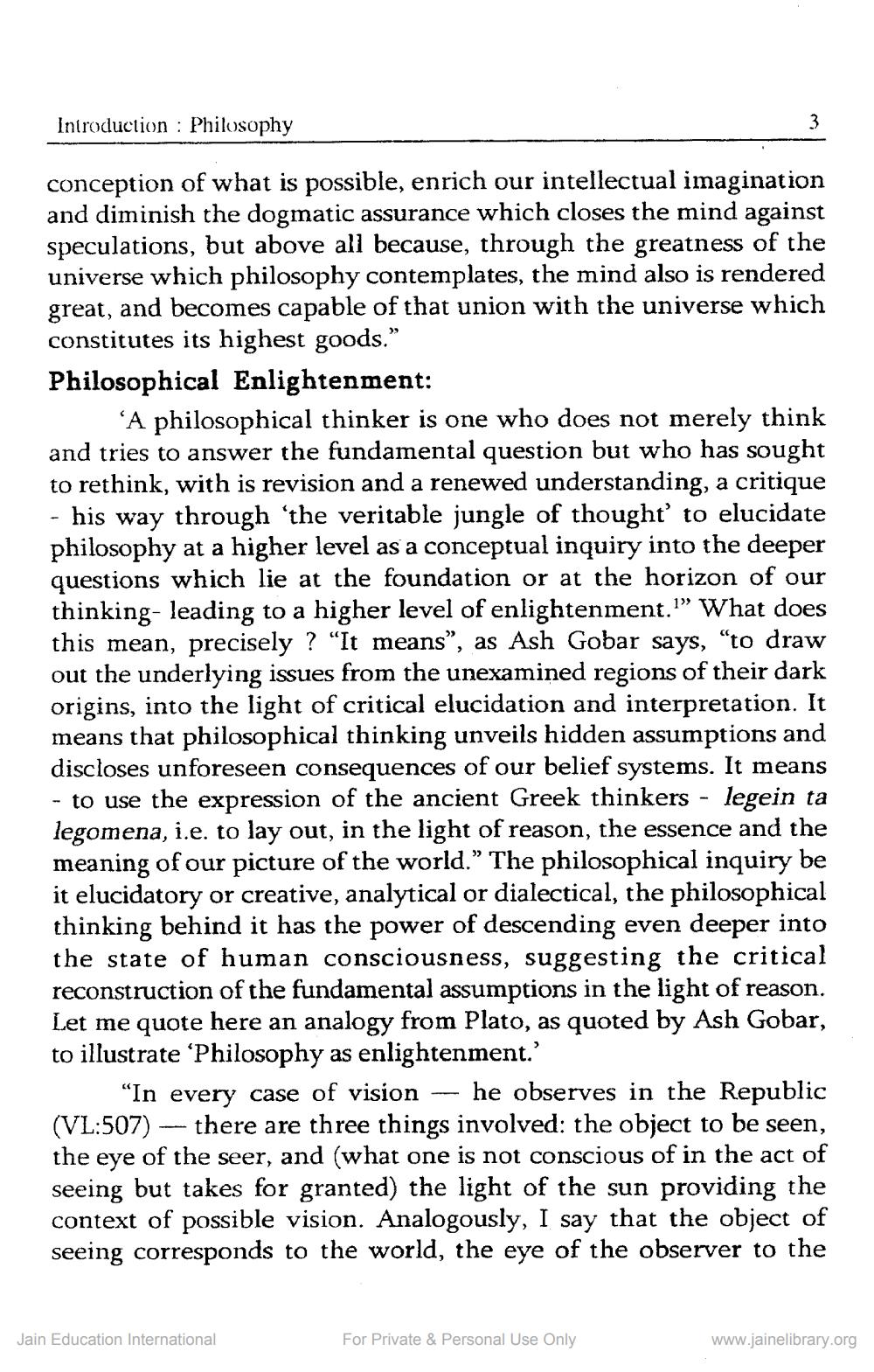________________
Introduction : Philosophy
conception of what is possible, enrich our intellectual imagination and diminish the dogmatic assurance which closes the mind against speculations, but above all because, through the greatness of the universe which philosophy contemplates, the mind also is rendered great, and becomes capable of that union with the universe which constitutes its highest goods." Philosophical Enlightenment:
A philosophical thinker is one who does not merely think and tries to answer the fundamental question but who has sought to rethink, with is revision and a renewed understanding, a critique - his way through 'the veritable jungle of thought to elucidate philosophy at a higher level as a conceptual inquiry into the deeper questions which lie at the foundation or at the horizon of our thinking- leading to a higher level of enlightenment.!" What does this mean, precisely ? “It means”, as Ash Gobar says, “to draw out the underlying issues from the unexamined regions of their dark origins, into the light of critical elucidation and interpretation. It means that philosophical thinking unveils hidden assumptions and discloses unforeseen consequences of our belief systems. It means - to use the expression of the ancient Greek thinkers - legein ta legomena, i.e. to lay out, in the light of reason, the essence and the meaning of our picture of the world.” The philosophical inquiry be it elucidatory or creative, analytical or dialectical, the philosophical thinking behind it has the power of descending even deeper into the state of human consciousness, suggesting the critical reconstruction of the fundamental assumptions in the light of reason. Let me quote here an analogy from Plato, as quoted by Ash Gobar, to illustrate ‘Philosophy as enlightenment.'
“In every case of vision - he observes in the Republic (VL:507) — there are three things involved: the object to be seen, the eye of the seer, and (what one is not conscious of in the act of seeing but takes for granted) the light of the sun providing the context of possible vision. Analogously, I say that the object of seeing corresponds to the world, the eye of the observer to the
Jain Education International
For Private & Personal Use Only
www.jainelibrary.org




